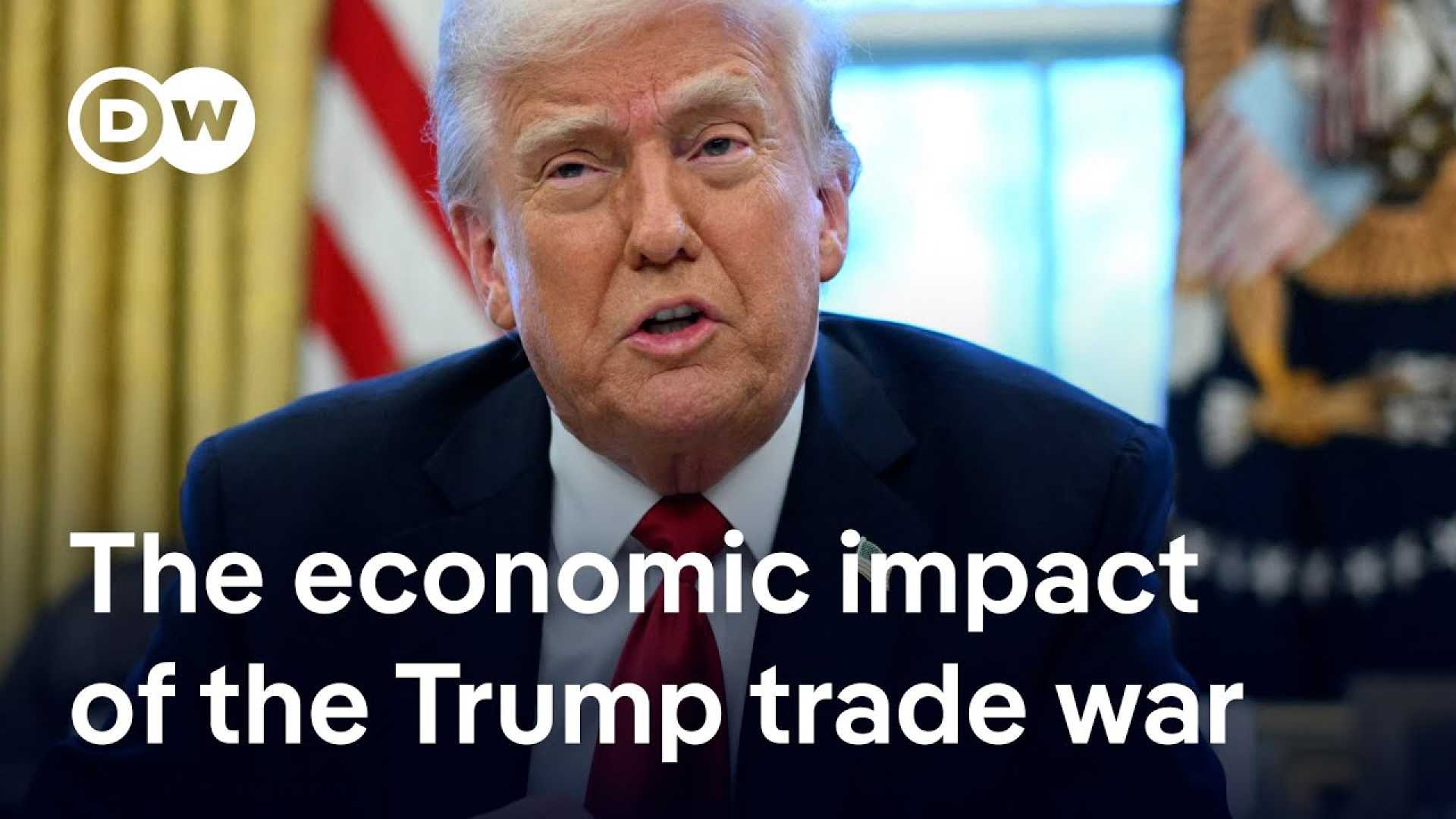Business
Trump’s Tariff Announcement Triggers Market Tumult

NEW YORK — U.S. stock markets experienced dramatic declines Thursday following President Donald Trump’s announcement of sweeping new tariffs targeting numerous trading partners. The Dow Jones Industrial Average lost 1,679 points, or approximately 4%, marking the index’s most significant drop since 2020. The S&P 500 and Nasdaq Composite also saw sharp declines, falling 4.8% and nearly 6% respectively.
The market turmoil was triggered by Trump’s declaration on Wednesday that a minimum 10% tariff would be imposed on almost all countries, with specific rates applied to major partners such as a 34% tariff on China. In his address, Trump stated, “April 2, 2025, will forever be remembered as the day American industry was reborn.”
Trump’s announcement sent shockwaves through the markets, particularly affecting multinational corporations reliant on international supply chains. Shares of major companies such as Nike plummeted by 14%, while Apple and Amazon saw declines of 9% each. The situation was exacerbated by fears of a potential escalation in international trade conflicts.
According to Michael Block, a market strategist at Third Seven Capital, the tariffs represent an unprecedented shift in trade policy, comparing the move to a “suicide bomber” strategy. His assessment reflects broader concerns about the long-term implications for the U.S. economy.
Following the tariff announcement, Treasury bond yields fell sharply. The yield on the 10-year Treasury note decreased to 4.05%, indicating investor preferences toward safer assets amid market uncertainty. Gold prices surged above $3,160 an ounce, marking a significant increase as investors sought to shield against potential inflation and economic downturn.
In a bid to reassure investors, White House press secretary Karoline Leavitt commented on Thursday, stating, “This is a president who is doubling down on his proven economic formula from his first term.” However, skepticism remains among analysts regarding the sustainability of this approach amid rising tax implications and economic slowdown threats.
JPMorgan analysts predicted that if the tariffs remain in place, they could plunge both the U.S. and global economies into recession, with potential tax increases on Americans estimated at $660 billion per year. The analysts also anticipate that the tariffs could contribute to a 2% increase in consumer prices, exacerbating the inflation challenges already faced.
The drastic tariff measures have reignited fears of retaliatory actions from affected countries, raising questions about future trade relationships and the impact on domestic consumers. Mark Zandi, chief economist at Moody’s Analytics, noted that the tariffs could serve as a catalyst for an economic downturn if consumer and business spending declines.
Despite the significant threats posed by these tariffs, Trump is optimistic, asserting that foreign nations will seek to negotiate with the United States to mitigate the impact of the new trade policies.












